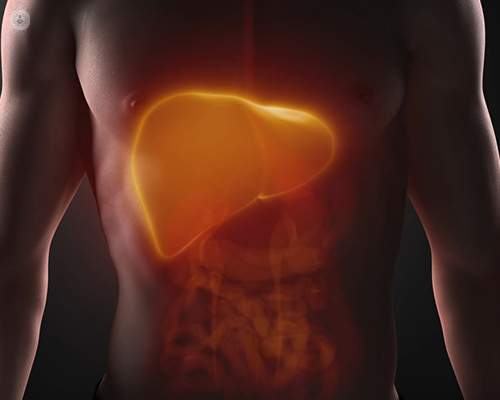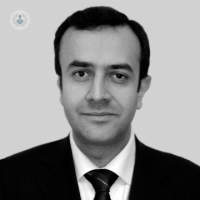Liver cirrhosis: causes, symptoms, and treatment
Written by:Liver cirrhosis is a condition that occurs when one's liver suffers gradual deterioration as a result of scarring and/or chronic injury, and, if left untreated, can lead to many problematic complications.
In our latest article, esteemed London-based consultant hepatologist, Professor Raj Mookerjee, details the causes and symptoms of liver cirrhosis, whilst also revealing how the condition is most effectively managed and treated.

What is liver cirrhosis?
When the liver is damaged, there is an increase in scar tissue formation. This is usually driven by inflammation-based processes.
Over time, the scar starts to become more organised, which we refer to as fibrosis. Here, a patient will progress through more and more high grades of fibrosis until it’s very organised.
That organised scar tissue in the liver is what we define as cirrhosis. In other terms, this conditions points towards increasing impairment of not only the function of the liver, but also impacts things such as the blood circulation and flow going through the liver, as well as the function of the immune system.
What is the main cause of liver cirrhosis?
In the Western world, the most common causes include alcohol-based liver injuries. In the UK, we probably see between 60 and 70 per cent of causes of cirrhosis driven by alcohol consumption.
However, increasingly, obesity and diabetes are appearing to significantly drive fatty deposition in the liver, and this condition (fatty liver disease) has an increasing impact on progression to liver cirrhosis. Other common cause is inflammatory liver disease.
What symptoms are associated with liver cirrhosis?
Some patients with cirrhosis, in the early stage, will have no symptoms at all. As the disease progresses, symptoms may include abdominal swelling caused by fluid, or an increased swelling of the legs.
What different types of cirrhosis complications are there, and what is the most common?
Abdominal swelling and lower limb swelling is, for sure, the most common presentation and complication associated with liver cirrhosis. Other common complications include the risk of bleeding and kidney dysfunction.
Another very common finding is a change in patient’s higher brain function, which can cause confusion, or just not being as effective when it comes to carrying out and performing daily tasks. Higher brain function changes can then progress to the point where patients become increasingly sleepy.
How is liver cirrhosis managed and treated?
Cirrhosis management is trying to see if one can prevent the onset of complications. So, we go from a stage that we refer to as compensated cirrhosis (where patients are still able to work and live without interference) to a stage that we call decompensation (where the patient is unable to carry on working). So, our priority here is really to do everything we can to avoid patients getting to the stage of decompensation.
Once patients present with decompensation, then the real goal is to try and prevent them progressing further still, which would lead to the patient either requiring a liver transplant or succumbing to the disease.
There is no specific treatment for cirrhosis currently, but I think the new treatments that will become available in the next few years will specifically focus on the sources of inflammation and bacteria forming in the gut, to try and effectively reduce the progression of liver cirrhosis.
Professor Raj Mookerjee is a highly proficient consultant hepatologist who specialises in conditions that affect the liver, such as liver cirrhosis. Consult with him today via his Top Doctors profile.


